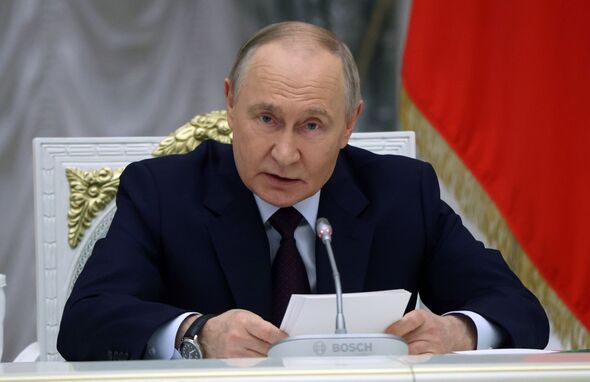Politics
UK Defence Minister Orders Military to Prepare for Potential Conflict

The UK government has directed officials within the Ministry of Defence to prepare for potential military conflict, emphasizing a need for readiness “in our own backyard.” Defence Minister Luke Pollard announced the urgency to expedite the nation’s defence procurement process, which amounts to a substantial £288 billion over the next decade.
Pollard, who took office in September, outlined a vision for the armed forces to be equipped to fight swiftly, even if it involves taking greater risks with public funds. He stated, “We are not at war, but nor are we at peace any longer,” reflecting the escalating tensions with Russia.
Concerns Over Russian Aggression
The remarks come in the wake of increasing assertions from defence experts that the UK is already engaged in a form of conflict with Russia. George Robertson, a former General Secretary of NATO and past Defence Secretary, has been vocal about this issue, declaring, “Russia is clearly at war with us.” He emphasized that while the UK is not officially at war, the Kremlin’s actions, including the deployment of drones into Polish airspace, signal a direct threat.
The Ministry of Defence plans to allocate the £288.6 billion for equipment and support from 2023 to 2033. Pollard urged a significant reduction in procurement timelines, stating that processes currently taking five years should be completed within two. He indicated that the urgency of the situation necessitates a shift in approach: “Procurements that take two years need to take one.”
Adapting Procurement Strategies
Pollard’s focus is on transitioning from a peacetime procurement mindset to one that prioritizes readiness for potential conflict. He warned that the Ministry of Defence must rethink its “risk ratios,” remarking that the previous standards are no longer applicable given the current geopolitical climate.
He explained, “Peacetime procurement was fine when we were in a peacetime, but you all know that we are not at war, but nor are we at peace any longer.” The goal is to enhance the speed of acquiring necessary equipment without compromising the quality of what is provided to the armed forces.
While the Minister’s intentions have been met with support from some quarters, they have also raised concerns within the procurement community. An insider from the Defence Equipment and Support agency in Bristol expressed uncertainty about the implications of Pollard’s comments regarding risk-taking. They stated, “As no one is quite sure what the Minister means by taking risks with contracts, many of us are now hesitating about what is required.”
This reflects a need for clearer guidance on acceptable risks to avoid potential financial missteps for taxpayers.
Experts in foreign policy are urging the government to act decisively. Alan Mendoza, Executive Director of the Henry Jackson Society, remarked, “The time for talk on this matter is over.” He stressed the importance of establishing a clear plan to ensure that the British armed forces are adequately prepared for any potential conflict.
As the situation evolves, the UK government faces the challenge of balancing the urgency of military readiness with the need for clarity and efficiency in its procurement processes. The implications of these directives could significantly influence the nation’s defence strategy in the coming years.
-

 World2 months ago
World2 months agoCoronation Street’s Shocking Murder Twist Reveals Family Secrets
-

 Entertainment2 months ago
Entertainment2 months agoAndrew Pierce Confirms Departure from ITV’s Good Morning Britain
-

 Health5 months ago
Health5 months agoKatie Price Faces New Health Concerns After Cancer Symptoms Resurface
-

 Health2 weeks ago
Health2 weeks agoSue Radford Reveals Weight Loss Journey, Shedding 12–13 kg
-

 Entertainment6 months ago
Entertainment6 months agoKate Garraway Sells £2 Million Home Amid Financial Struggles
-

 Entertainment5 months ago
Entertainment5 months agoAnn Ming Reflects on ITV’s ‘I Fought the Law’ Drama
-

 World3 months ago
World3 months agoBailey Announces Heartbreaking Split from Rebecca After Reunion
-

 Entertainment2 months ago
Entertainment2 months agoDavid Jason and Nicholas Lyndhurst Eye Reunion for Only Fools Anniversary
-

 Entertainment3 months ago
Entertainment3 months agoCoronation Street Fans React as Todd Faces Heartbreaking Choice
-

 World3 months ago
World3 months agoEastEnders’ Nicola Mitchell Faces Unexpected Pregnancy Crisis
-

 Entertainment2 months ago
Entertainment2 months agoBradley Walsh Sparks Strictly Come Dancing Hosting Speculation
-

 Entertainment2 months ago
Entertainment2 months agoTwo Stars Evicted from I’m A Celebrity Just Days Before Finale




















